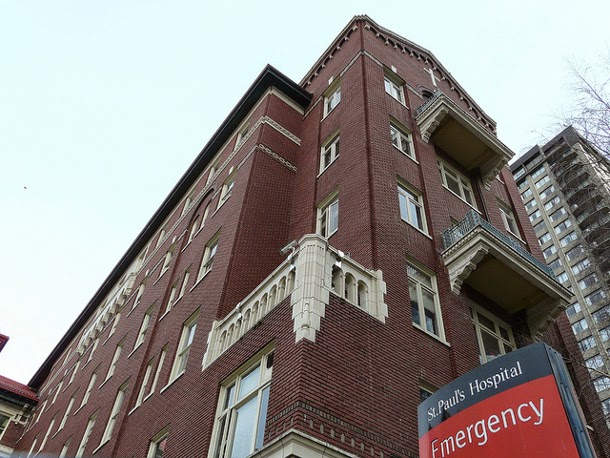 |
| Vancouver Mount Pleasant MLA Jenny Kwan launching her federal NDP nomination campaign - Bill Tieleman photo |
Party brass unanimously approved charge
to run in one of province's poorest ridings.
Bill Tieleman’s 24
Hours Vancouver / The
Tyee column
Tuesday
May 5, 2015
By Bill Tieleman
“The
New Democratic Party holds firm to the belief that the dignity, freedom and
equality of the individual is a basic right that must be maintained and
extended."
Here's
the big money question: is the B.C. New Democratic Party deliberately trying to
create internal dissent with a new $2,000 non-refundable "entry
fee" in the upcoming Vancouver-Mount Pleasant by-election?
Or
is it simply oblivious to the optics of a party that wants to be seen as
sticking up for the little guy demanding candidate fees that are higher than
any other party is charging?
Even
worse, the BC NDP executive unanimously approved the new $2,000 fee for one of
B.C.'s poorest ridings.
The
party says it's all about fundraising and being competitive with its
better-financed BC Liberal Party opponents.
BC
NDP president Craig Keating defends the move, saying on Monday that candidate
fees were in place in the 2013 election, though he was unable to say how much
they were.
"Fees
help us recover the costs of the nomination," Keating said, adding that
the new entry charge only applies to by-elections so far.
However,
as The Tyee's Andrew MacLeod has reported,
the move has rankled many rank and file members as a major financial impediment
to candidates who don't have quick access to $2,000.
It's
just plain wrong. A social democratic party fighting economic inequality and
helping the under-privileged has no business demanding a $2,000 entry fee from
a candidate just for the right to put their name forward for members to
democratically decide on their candidacy.
Why
should a worthy candidate of limited means be dependent on the charity of
others to raise the money?
It
smacks of elitism and entitlement, at a time when voters in Alberta appear
ready to dismiss their Conservative government in today's election for exactly
those reasons.
The
BC NDP opened nominations
on April 22 and closed them May 1, giving any candidate only a week to come up
with the $2,000.
Great
candidate, overshadowed by controversy
The
controversy is too bad, because the BC NDP has attracted an excellent candidate
to vie for the seat of veteran MLA Jenny Kwan, who will step down from her
position to run in the federal election.
Melanie
Mark is a former deputy to the Representative for Children and Youth,
Mary-Ellen Turpel Lafond, whose office is respected for fighting to protect
children in care and demanding accountability from government.
If
she won the by-election, Mark would become the only First Nations MLA in the
B.C. Legislature. Her accomplishments and abilities are considerable.
Unfortunately,
the fee controversy -- if not quickly fixed -- may be an unwelcome distraction
for the BC NDP from attacking the BC Liberals' atrocious record on child
poverty and other issues.
Mark
herself has raised concerns about the fee.
"I'm
sure it's a barrier. We need to reduce barriers for people, and I want this to
be a fair, equitable, transparent process," she said
last week.
Ironically,
the federal NDP has
no entry fee for candidates; the federal Conservatives have
a refundable $1,000 "Good Conduct Bond" that is returned if
candidates respect the rules; and the federal Liberal Party charges
a $1,000 fee.
The
BC Liberal Party did not respond to email and phone inquiries by deadline, but
a veteran party activist said they were unaware of any candidate nomination
fee.
Fundraising
the fee
For
perspective, here's what it takes for some less-than-well-off British
Columbians to raise personally come up with the BC NDP's $2,000 entry fee.
At
an average B.C. wage
of $25.73, it would take over 77 hours of work to raise the fee.
For
a person on disability
benefits of about $906 a month, it would take over two months.
And
it would mean over 195 hours working at B.C.'s current minimum wage
of $10.25 an hour.
The
$2,000 fee may not seem like much to some, but it is a substantial barrier to
many.
The
BC NDP has made an unnecessary problem for itself. The smart move is to end
this policy and the controversy it's creating immediately.






























